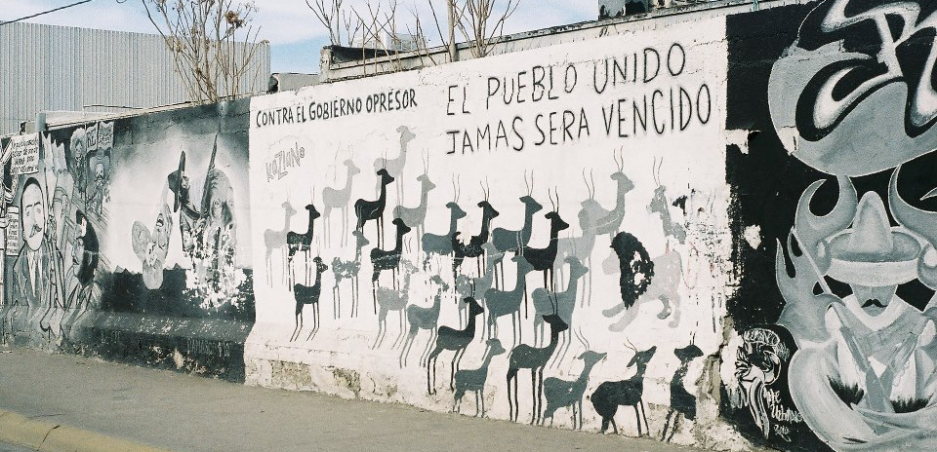Well, I want to start my end of term reflection by thanking everyone for being such great classmates. I feel like we had some pretty productive discussions and got into some interesting revolutionary terrain during the class. The debates were lively and the respect for each other’s opinion was paramount. So, it was a real pleasure to have spent the time with you all and I am inspired by your passion.
Regarding the format of the class, I really came to appreciate the unique environment it created. I think it was in our conversations about the lack of spaces to connect as students when I started to realize the value of our semi-unstructured space. I feel like the learning often flowed more organically as a result. That freedom often yielded substantial outcomes and I thank you for that Jon.
Within the course I enjoyed many of the texts. It was interesting to get such a broad description of revolutionary accounts and compare them side-by-side. I am not sure how much closer I am to answering what is a revolution? but it really doesn’t matter. The texts established diversity in strategies to create change and brought bigger questions to the foreground. Like: Is the thrill of revolution addictive? or How can we deconstruct this world and reconstruct a new one at the same time? Or where do we direct the violence? or how can we structure a revolution so that it addresses multiple systems of oppression effectively? These critiques are where real strength in the movement comes from and I think the authors we read did an excellent job of provoking this type of thinking. I especially appreciated writings like Cartucho and Invisable that illustrated the poetry of resistance. I just read this really cool article about decolonial art and they describe the role of creativity in the creation of social change – “It seeks to limn the margins of land, culture and consciousness for potential exits, for creative spaces of departure and renewal.” I think that their idea is really important because it suggests that within the act of creative resistance new worlds are formed. I feel like this was something that all of the authors we read accomplished through their literature.
So, the revolution is coming. It happened then. It is happening right now, small but growing. It is morphing and adapting to the challenges we face. It may not look like the guerrilla struggles of the past but the goals are the same. People are waking, are calling out injustice and finding their place in the dismantling of violent systems. They are working connect beyond oppression and build a reality founded in justice.

I really liked one of the questions you asked on your blog, “how can we structure a revolution so that it addresses multiple systems of oppression effectively?”. I think this somewhat goes with what Dacyn referred to in his blog about the struggles to overcome capitalism. This idea however, is so important, especially since it affects everyone. Lastly, I like how you think we are currently in a revolution. I think this is true. We are seeing rising social movements, civlian participation, governments as well are starting to working together to fight against common global issues. And all of this to find peace, and as you say, justice.
LikeLike
A nice optimistic ending to things! 🙂 And I also want to thank you and everyone else to contribute to what I agree was a productive class atmosphere, even though people were coming from very different backgrounds and perspectives.
LikeLike
I totally agree that the revoltution is coming and, as I talked a little bit about in class, is something that “class concious” individuals need to be prepared for. Revolutions can be sparked in periods on working class frustrations such as the material conditions found throughout Europe and other areas of the world currently.
LikeLike
I agree with you that the unstructured aspects of the class allowed for us to create our own unique space which wasn’t available to us at UBC. Even if our conversations drifted from time to time, they eventually found their way back to our current topic. It’s something that we shared as a class that no one else at UBC was able to experience, in some way our own personal revolution within the institution.
LikeLike
I do like the idea that this was “in some way our own personal revolution within the institution.”
LikeLike